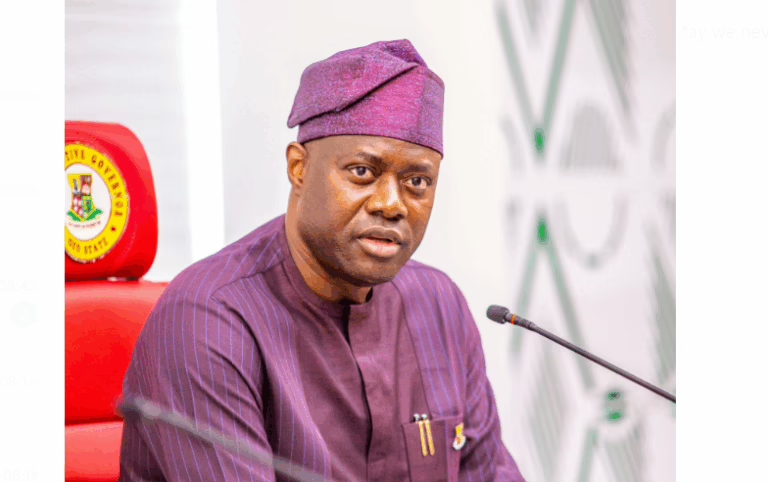The Oyo Global Forum (OGF) has raised serious concerns regarding the recent exclusion of Oyo Zone from the State Executive Council’s approval of projects valued at over ₦113 billion. These projects, which include road construction, rehabilitation, and other infrastructural developments, span various parts of the state but notably omit Oyo Zone.
In a statement released to LEADERSHIP on Wednesday, OGF chairman Taiwo Adebayo emphasized the necessity for the government to adopt a more inclusive approach, ensuring transparency in public finance and equitable resource allocation.
While OGF acknowledges the critical role infrastructure plays in enhancing mobility and driving economic progress, it expressed alarm that not a single project was designated for the Oyo Federal Constituency. This exclusion, Adebayo noted, is part of a concerning trend.
“The neglect is particularly disheartening given the deteriorated condition of roads throughout Afijio, Atiba, Oyo East, and Oyo West Local Government Areas,” he remarked.
During recent visits to communities within the zone, OGF observed firsthand the daily hardships residents face due to poor road networks. Some areas have become virtually inaccessible, severely hampering daily life and economic activities.
“Residents are forced to spend exorbitant amounts on vehicle repairs-funds that could otherwise support their children’s education or family healthcare,” Adebayo explained.
Beyond road infrastructure, OGF highlighted the abandonment of vital projects in Oyo Zone, including the State Hospital and agricultural silos, both essential for advancing healthcare and agricultural productivity.
The forum also drew attention to the dilapidated state of the hospital in Oyo, lamenting that efforts to expand and enhance its services have been stalled for years.
OGF has long advocated for budgeting processes that are fair, inclusive, and participatory. The recent project allocations, according to Adebayo, reinforce the perception that major public spending decisions are made without adequate consultation, transparency, or fairness.
He further pointed out that these developments coincide with the state government’s contentious ₦300 billion loan proposal. While acknowledging that borrowing can be a necessary strategy for development financing, Adebayo stressed that the repayment responsibility falls on all citizens, making it imperative that the benefits of such loans are distributed justly.
Consequently, OGF called on Governor Seyi Makinde’s administration to ensure that infrastructure projects are fairly distributed across all zones, including the Oyo Federal Constituency.
The group also urged the government to enhance transparency in public financial management and encourage citizen engagement to ensure that projects address genuine community needs. Clear communication regarding the allocation of loan proceeds and public funds is essential to foster trust and accountability.
Finally, OGF appealed to lawmakers representing the Oyo Zone to actively hold the government accountable and advocate for equitable development that benefits the people of the zone.

















